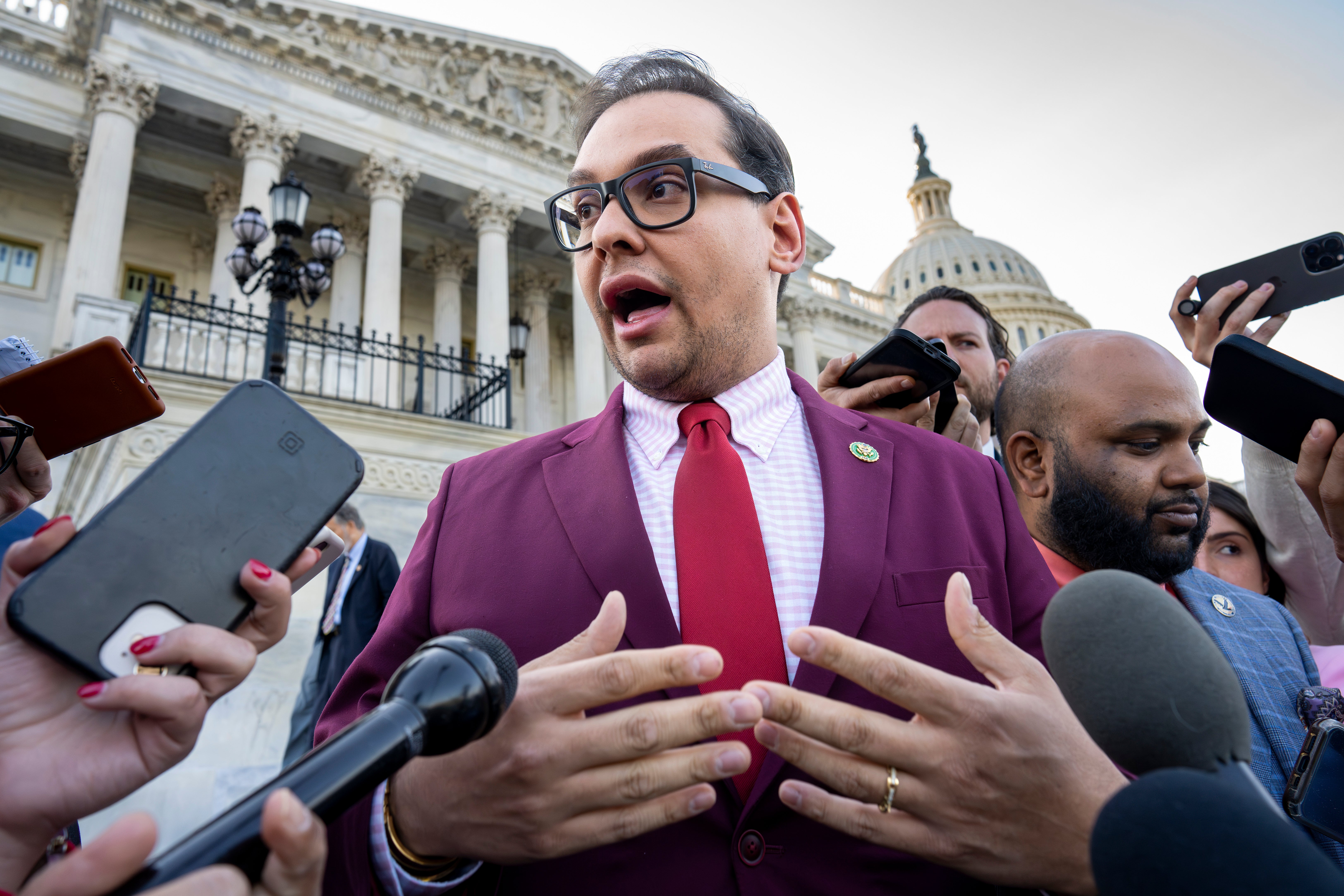Rep. Santos says he's protecting family members by seeking to keep bond cosigners secret
Rep. George Santos says he's just trying to protect family members by asking the courts to keep his bond cosigners secret as he fights criminal charges

Your support helps us to tell the story
From reproductive rights to climate change to Big Tech, The Independent is on the ground when the story is developing. Whether it's investigating the financials of Elon Musk's pro-Trump PAC or producing our latest documentary, 'The A Word', which shines a light on the American women fighting for reproductive rights, we know how important it is to parse out the facts from the messaging.
At such a critical moment in US history, we need reporters on the ground. Your donation allows us to keep sending journalists to speak to both sides of the story.
The Independent is trusted by Americans across the entire political spectrum. And unlike many other quality news outlets, we choose not to lock Americans out of our reporting and analysis with paywalls. We believe quality journalism should be available to everyone, paid for by those who can afford it.
Your support makes all the difference.Rep. George Santos wants to protect family members by asking the courts to keep his bond cosigners secret as he fights criminal charges, his lawyer told a Long Island federal judge Friday as he asked her to reverse a magistrate judge's decision to make the names public.
Attorney Joseph Murray said in a letter to Judge Joanna Seybert, who is based in Central Islip, New York, that Santos would agree to the disclosure that there is a “family” relationship between the Republican congressman and those who signed his bond.
News media outlets have challenged the sealing of records regarding the cosigners after Santos pleaded not guilty on May 10 to a 13-count indictment charging that he duped donors, stole from his campaign, lied to Congress about being a millionaire and cheated to collect unemployment benefits he didn’t deserve.
The New York Times first sought to unseal the names and other news outlets, including The Associated Press, soon followed. Lawyers for the news entities did not immediately comment Friday.
Santos, 34, who represents parts of Queens and Long Island, has refused to resign and plans to seek a second term.
On Tuesday, U.S. Magistrate Judge Anne Shields ordered that the names be revealed but gave Santos until Friday to appeal. Murray had told Shields that Santos would rather go to jail than subject bond cosigners to the kind of threats he has gotten.
Murray filed a letter with Seybert on Friday morning.
In it, he repeatedly decried the “media frenzy” that has surrounded the criminal case, saying that three individuals lined up to cosign his bond “grew very fearful and concerned” on May 10 and one of them had a “change of heart and backed out.”
Murray said he publicly notified the House Ethics Committee that those who signed his bond were family members and not lobbyists, donors or others seeking to influence Santos, and he was willing to do the same in court documents.
In asking Seybert to overturn the magistrate judge's decision, Murray wrote that Shields “failed to perceive the importance of the privacy issues” facing the cosigners.
Murray said Santos has faced “hateful attacks” since his arrest and been confronted with individuals who were “extremely angry, anti-gay, anti-Republican and all around anti-social.” Prior to Friday, Murray has said he, Santos and Santos’ staff have been receiving threatening and harassing calls and messages, including death threats.
If the names of the cosigners are revealed, they too might face attacks, he argued in Friday's letter.
“Moreover, given the political temperature in this Country and acts of political violence that occur, the privacy interests of these suretors are far more concerning, especially considering their ages and respective employment,” Murray wrote.
In a May 23 letter requesting release of the names, attorney Dana Green wrote on behalf of the Times that the First Amendment required public access to the identities of those who signed the bond.
She said the signing of the bond “presents an obvious opportunity for political influence,” but she also noted that the public has an interest in ensuring that Santos appears in court and in exercising oversight of the effectiveness of the bond.
___
Associated Press Writer Michael R. Sisak contributed to this report.